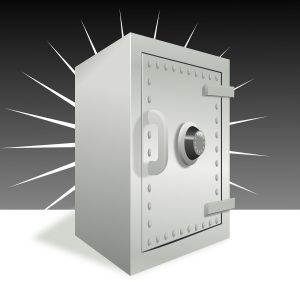1. more ![]()
[adverb/indefinite numeral]
The use of “meer” is quite versatile. It is used in a comparative context, and usually translates to “more”, although many other translations may apply too, see the Examples.
Examples:
– “Ik heb meer ruimte nodig…en meer geld!”
(“I need more space…and more money!”)
– “Ik heb veel rimpels, maar Frank heeft er meer.”
(“I have a lot of wrinkes, but Frank has more.”)
– “Sophie heeft in een week meer bereikt dan Frank in een heel jaar.”
(“Sophie has achieved more in a week than Frank in a whole year.”)
– “Wie waren er nog meer op het feest?”
(“Who else was there at the party?” (Lit.: “Who were there more yet at the party?”))
– “Door al deze ellende voel ik me meer dood dan levend…”
(“Because of all this misery, I feel rather dead than alive.”)
– “Ik heb echt geen puf meer, ik ben helemaal uitgeput.”
(“I really don’t have the energy any more, I’m completely exhausted.”)
– “Sorry, ik kan je niet meer volgen.”
(“Sorry, I can’t follow you any more.”)
– “Sarah is niet meer vrij, ze is vorig jaar getrouwd…”
(“Sarah is no longer available, she got married last year…”)
Expressions:
– “Min of meer”: more or less (lit.: less or more).
– “Onder meer”: among others, among other things.
Example:
– “Ik heb onder meer ontdekt dat er op het werk door bepaalde mensen gefraudeerd wordt, maar er is hier nog zoveel meer mis…”
(“Among other things, I have discovered that some people commit fraud at work, but there’s so much more wrong here…”)
– “Des te meer”: all the more.
Related words:
– Minder: less [adverb/indefinite numeral].
– Veel: many [adverb/indefinite numeral].
– Weinig: little [adjective/adverb/indefinite cardinal].
2. lake ![]()
[noun]
[het meer, de me-ren]
As a noun, “meer” translates to “lake”. The Netherlands have a lot of (very) small lakes, although they are usually called “plassen” (lit.: pools/lakes).
The biggest lake in the Netherlands is the IJsselmeer, which used to be a sea (the Zuiderzee), until it was closed by a 32 km dam, the Afsluitdijk, in 1932.
Examples:
– “Hoe laat vertrekt het veer naar de overkant van het meer?”
(“At what time does the ferry leave for the other side of the lake?”)
– “Ik ga vandaag zeilen op het Naardermeer.” – “Kun jij wel zeilen?” – “Ik ga met een instructeur, dus dat zit wel snor.”
(“I’m going sailing today on Lake Naarden.” – “Do you even know how to sail?” – “I’m going with a instructor, so that will be all right.”)
Related words:
– Oceaan: ocean [noun] [de oceaan, de oceanen].
– Strand: beach [noun] [het strand, de stranden].
Example:
– “Heeft dit meer ook een zandstrand, of zijn het alleen maar rotsen?”
(“Does this lake also have a sandy beach, or is it just rocks?”)
– Zee: sea [noun] [de zee, de zeeën].

 Here the verb “kraken” is commonly used as illustrated below. Although not necessarily semantically correct, ‘kraken’ is used for breaking codes, security, (into) computers, passwords, safes etc.
Here the verb “kraken” is commonly used as illustrated below. Although not necessarily semantically correct, ‘kraken’ is used for breaking codes, security, (into) computers, passwords, safes etc. “Gaan met die banaan!” literally translates to “Go with that banana!” 🙂 It’s used to encourage people to go ahead with the activity at hand. “Gaan met die banaan” doesn’t really have an etymology…it’s just a good rhyme 😉
“Gaan met die banaan!” literally translates to “Go with that banana!” 🙂 It’s used to encourage people to go ahead with the activity at hand. “Gaan met die banaan” doesn’t really have an etymology…it’s just a good rhyme 😉